Pre-war men had their irresistible charm. Elegantly shaved, well-dressed, well-built and showing a real kinder hair, they easily won women's hearts. We present a gallery of men to whom our great-grandmothers sigh.
Eugene Bodo
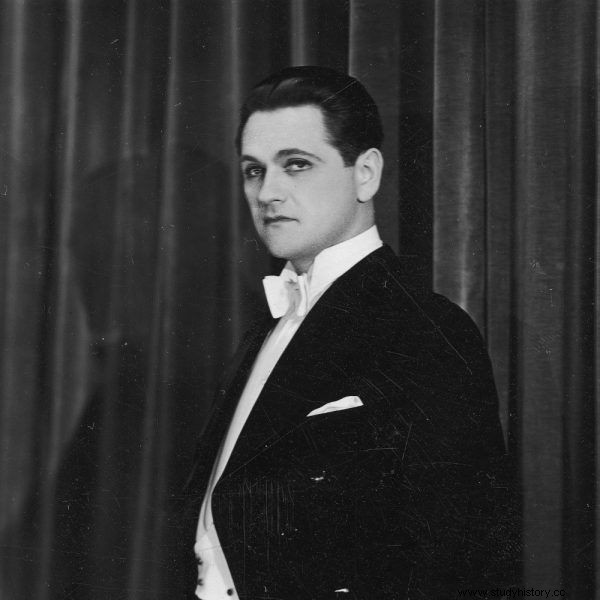
One of the greatest pre-war lovers - Eugeniusz Bodo (photo:public domain)
Eugeniusz Bodo, or rather Bohdan Eugène Junod, born in 1899, was the son of a Polish woman and a Swiss, thanks to which he had dual citizenship. His father was delighted with the cinematograph and traveled, among others, around tsarist Russia, organizing film screenings. It was through him that Eugene first came into contact with the tenth muse. He started his acting career at the age of 10 on the stage of his father's "Urania" Illusion Theater.
In his teens, he performed as a singer and dancer on revue stages, and in 1919 he began to play in the most famous cabarets, such as "Qui pro Quo" or "Cyrulik Warszawski". He made his film debut in 1925 and from that moment his career took off. Interestingly, he was one of the first Polish stars to become the face of a clothing brand. He was an idol of women, he had a reputation for being gallant and seductive. He was completely abstinent.
Aleksander Żabczyński
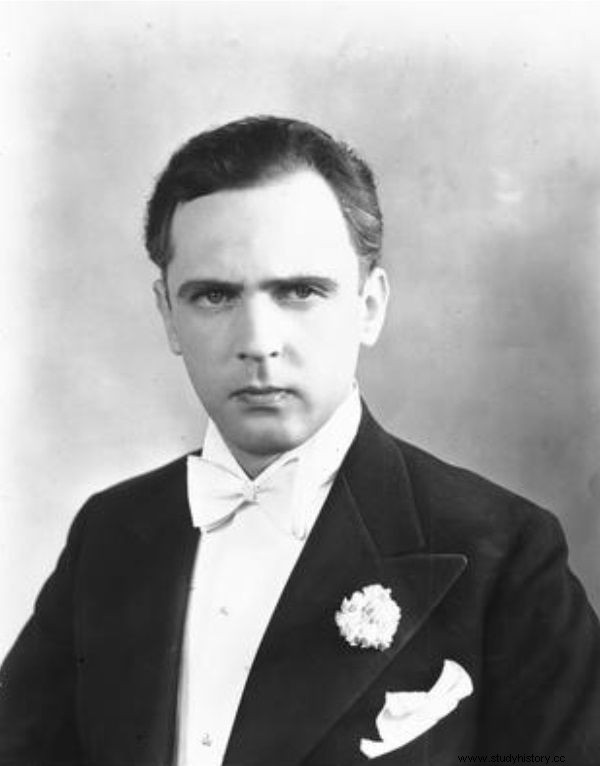
Aleksander Żabczyński in a photo from the movie "The Woman Who Laughs" (photo:public domain)
When Aleksander Żabczyński looked from under the line of his dark eyebrows, the knees of pre-war Poles felt weak. In his youth, nothing foreshadowed his dizzying career in the film industry. He attended the cadet school in Poznań and the law school (he died in the civil law exam). As a reserve officer, he finally began to develop his true passion for acting.
He started out in a theater to which he treated with great reverence. However, his real popularity was brought not by the famous theater and cabaret scenes, but by the film. He was a real first-league star of Polish cinema, and the roles were often written especially for him. In August 1939, he was mobilized, he fought in the famous II Corps, was wounded at Monte Cassino, and received many decorations. After the war, he returned to Poland and played in the theater.
Adolf Dymsza
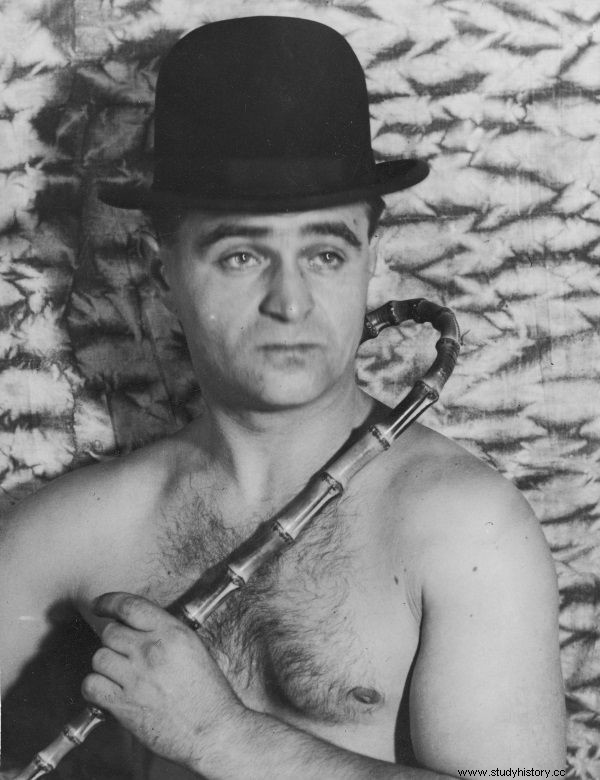
Adolf Dymsza (photo:public domain)
Adolf Dymsza, actually Adolf Bagiński, known in the film as Dodek, was born in 1900 in Warsaw. He was educated at the trade school in his hometown, but his true calling was theater, where he made his debut at the age of 18. Over time, he became an extremely popular revue actor.
He took his first steps in cinema in silent films, but it was only the advent of sound productions that allowed him to spread his wings and demonstrate his unquestionable comedy talent. The year 1935 was even called the "Year of the Smoke" in Polish cinema. After the outbreak of the war, the adored actor, to whom whole groups of women were sighing, fell from his pedestal - he decided to play in open occupation theaters. After the war, he was banned from playing in Warsaw for decades.
Igo Sym

Born in 1896, Igo Sym, or actually Karol Antoni Juliusz Sym, looked as if his face had been created in the most magnificent stonemason's workshop. The perfection of his beauty secured him a career in the film industry. He played mostly elegant men - aristocrats and military men, the real amateurs.
After his mother, Austrian, he also acted in German and Austrian cinema. After the outbreak of the war, Sym took part in the defense of Warsaw, but later became a Volksdeutsch and the Germans began to use his pre-war fame for propaganda purposes. He was a Gestapo informant (he arrested Ordonka) and recruited actors for anti-Polish productions. In 1941, the Polish underground executed him.
Franciszek Brodniewicz

Franciszek Brodniewicz and Jadwiga Smosarska in the film "Prosecutor Alicja Horn" (photo:public domain)
Much of Franciszek Brodniewicz's charm lay in the deep furrow that crossed his forehead. It gave his face a thoughtful look, but also a little dread. As his screen partner Jadwiga Smosarska once stated, with whom he starred in the film "Prosecutor Alicja Horn":
Brodniewicz has everything that our lovers usually lack:masculinity, height and attitude. For this a warm and resonant voice.
Brodniewicz played in "Prosecutor Alicja Horn" at the age of 41. Since then, he has made several films a year. His great streak was interrupted by the outbreak of the war. During the German occupation, he refused to participate in open productions. He died of a heart attack during the Warsaw Uprising.
Mieczysław Cybulski
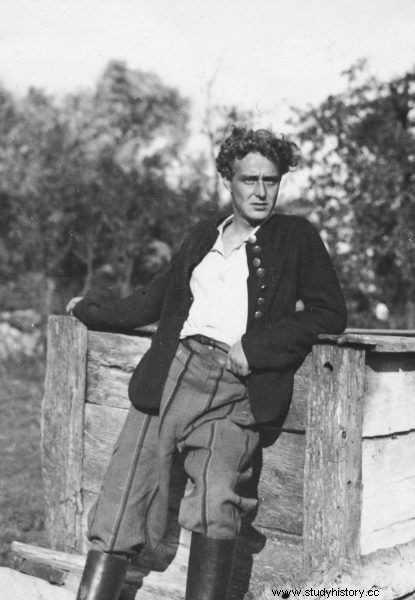
Mieczysław Cybulski (photo:public domain)
Nature has equipped Mieczysław Cybulski with a powerful weapon. Extremely long and thick lashes made a wonderful frame for his blue eyes. In combination with a truly angelic face, they made an electrifying impression on women. The whole thing was completed with thick fawn hair.
Cybulski was a beautiful man, but endowed with a great distance to himself and fame, and a sense of humor. Usually, due to his truly statuesque beauty, he was cast as lovers.
He himself called his heroes sloppy babes and sentimental little boys. Nevertheless, he treated acting seriously, collecting good reviews and attracting crowds of lovers to the cinemas. However, he had no intention of just playing in the movies. He recognized that acting could be practiced as an additional profession, provided that he had another solid job. He himself was proud to be the chauffeur-controller of the State Bus Lines.
Bolesław Wieniawa-Długoszowski
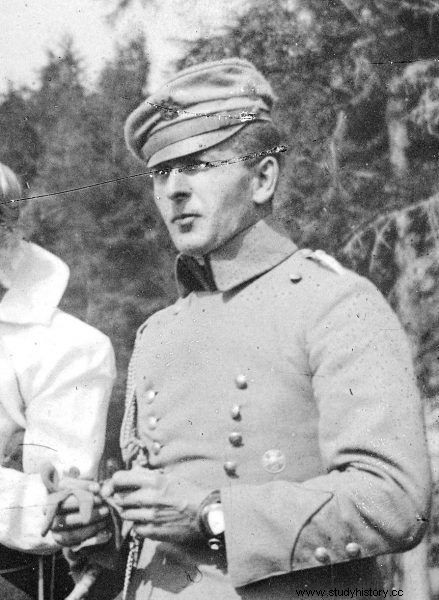
Bolesław Wieniawa-Długoszowski as a handsome 35-year-old in 1916 (photo:public domain)
Bolesław Wieniawa-Długoszowski is undoubtedly the most famous lancer of pre-war Poland, a true embodiment of the famous lancer fantasy. He was one of the most colorful figures of that time, and rumors and gossip about his excesses were repeated not only by Polish cream but also abroad.
He was educated and gallant, he wrote poetry, wore a uniform, he was also extremely sensitive to the charms of a woman. All this made the ladies look at him with delight. There were rumors of his affairs with loads of women.
Although duels were forbidden, Wieniawa dueled passionately and often. During his student days he was a teetotaler, but with time he changed his approach and became the strongest drunk head among the Warsaw elite.
Juliusz Osterwa
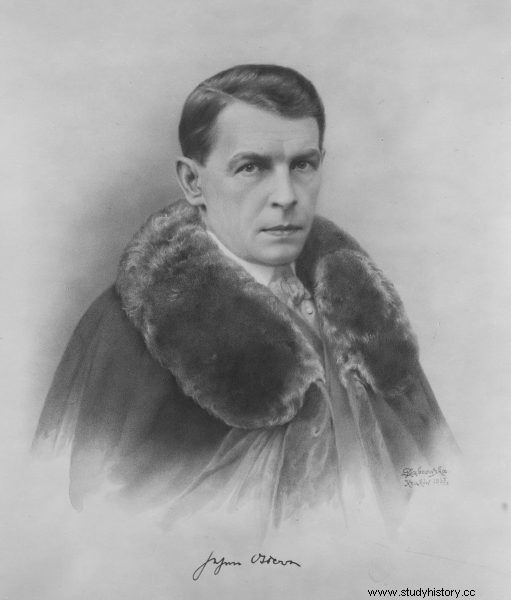
Juliusz Osterwa (photo:public domain)
His real name was Juliusz Andrzej Maluszek and he was the son of a court janitor and a midwife. His stage name was invented by Leon Schiller, a friend from the school bench. He didn't have an easy start. After his mother died, he lived almost like an orphan, wandering around for relatives. He did not pass the final grade and decided to look for a job in the theater. Unfortunately, he missed opportunities and missed important people.
When he finally got a real chance, he showed what he can do based on a piece by Słowacki. Osterwa had a great talent, which, combined with his beauty, aroused admiration among crowds of admirers. When, at the age of just over twenty, he decided to get married, the group of women who were in love with him fell to black despair. Desperate, they even sent letters full of requests and threats to the actor's fiancée and to himself.
Jarosław Iwaszkiewicz
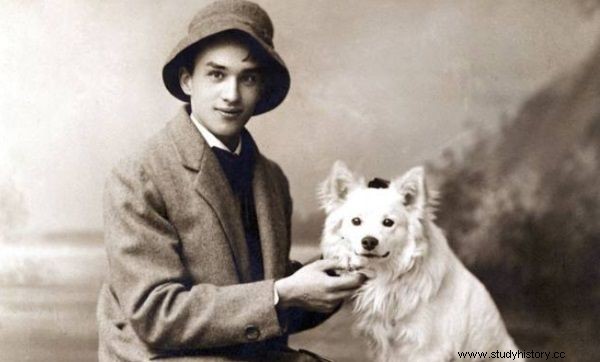
Jarosław Iwaszkiewicz in 1914 (photo:public domain)
We know Jarosław Iwaszkiewicz mainly as a poet, prose writer and translator, in short - a full-mouthed writer. If we had seen his image so far, it was rather a much older, bald man on top of his head with horn-rimmed glasses, straight from the People's Republic of Poland.
Meanwhile, the serious man, whose pieces we studied at school, in his youth was a very handsome man, well-built, with a long face. Supposedly, both men and women looked after him, and he himself was bisexual. He married Anna Lilpopówna, with whom they formed a fully compatible marriage.
Jan Kiepura
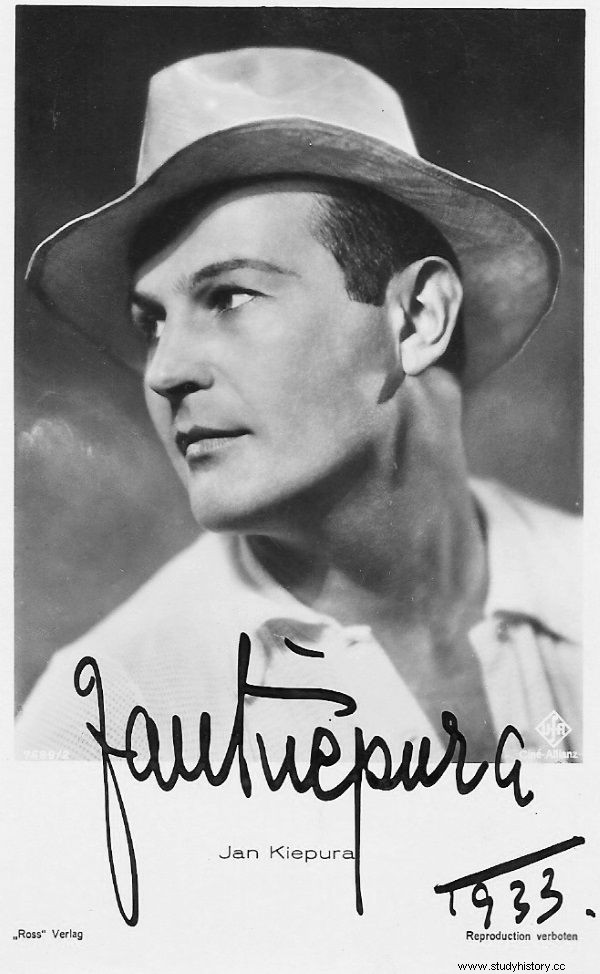
Jan Kiepura (photo:public domain)
Before he became a world-famous singer, Jan Kiepura was a simple boy from Sosnowiec, the son of a baker. When he began his studies (law - a popular field before the war), he also took up singing lessons. He did not become a lawyer, instead he soon began to win the hearts of the audience with his wonderful tenor.
He was a beautiful man with an angelic voice. He almost married the Polish Miss Zofia Batycka, but the father of the miss noticed how eagerly ladies from every social class offered Johnny their charms.
When handsome Kiepura finally settled down, he stopped paying attention to other women. As he sang in his famous hit "Brunettes, Blondes", although he wanted to kiss all the girls, only one mattered. Marta Eggerth.
